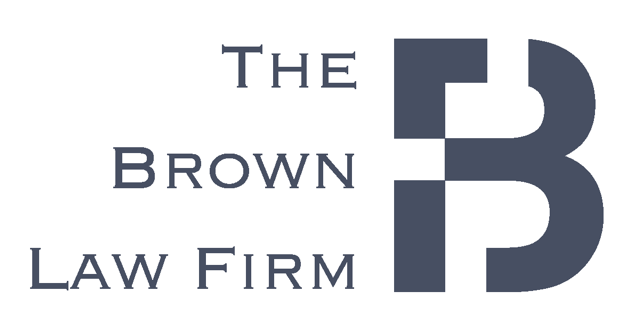What’s the Difference Between a Misdemeanor and a Felony?
Colorado’s approach to criminal justice reflects the state’s progressive values and commitment to public safety. The Centennial State has crafted a system that classifies crimes into distinct categories, each carrying specific penalties designed to match the severity of the offense. Understanding this system is vital whether you’re an attorney, student, or a curious citizen wanting to know how justice works in Colorado.
If you are facing a felony charge in Colorado, it’s always best to contact an experienced Colorado felony attorney as soon as possible. They will explain your rights and options and ensure you are treated fairly.
Exploring the Classes of Felonies in Colorado
The criminal justice system in Colorado reflects the state’s progressive ideals while prioritizing public safety. The Centennial State has established a sophisticated framework that categorizes crimes into specific classes, each associated with distinct penalties reflective of the crime’s seriousness.
Understanding the Felony Classification Framework
Colorado categorizes felonies into classes 1 through 6, where lower numbers indicate more severe crimes. Thus, a Class 1 felony represents the highest severity level, while Class 6 denotes the least serious offenses within felony classifications.
The Felony Classification System
Colorado separates felonies into classes 1 through 6, with the more serious crimes receiving lower numerical classifications. This inverse numbering system means that Class 1 felonies are the most severe, while Class 6 felonies are the least serious within the felony category.
Colorado’s system is fascinating because it recognizes that not all crimes of the same class deserve identical treatment. The state has developed special categories for “crimes of violence” and “extraordinary risk of harm crimes,” which carry enhanced penalties even within the same classification level.
Drug Felonies: A Special Category
Colorado also maintains a separate classification system for drug-related felonies, ranging from Drug Felony Level 1 (most serious) to Drug Felony Level 4 (least serious). This reflects the state’s nuanced approach to drug crimes, recognizing the difference between trafficking large quantities of dangerous substances and possessing smaller amounts for personal use.
The Most Serious Crimes: Class 1 Felonies
Class 1 felonies are punishable by life imprisonment and include first-degree murder, first-degree kidnapping, and treason. Colorado abolished the death penalty in 2020, making life imprisonment the ultimate punishment. These crimes represent the most heinous acts against society and carry the possibility of spending one’s entire remaining life behind bars.
Interestingly, Colorado’s approach to first-degree murder requires specific aggravating circumstances, such as killing a peace officer, committing murder during another felony, or killing multiple people. This ensures that the state’s harshest penalty is reserved for exceptional cases.
Violence Enhancement: When Crimes Become More Serious
One of Colorado’s most significant legal concepts is the “crime of violence” enhancement. When a felony involves the use or threatened use of a deadly weapon or when serious bodily injury occurs, the penalties can nearly double. For example, a Class 3 felony typically carries 4-12 years, but when enhanced as a crime of violence, it jumps to 10-32 years.
This enhancement reflects Colorado’s commitment to protecting citizens from violent crime while acknowledging that the presence of weapons or serious injury fundamentally changes the nature of an offense.
Property Crimes: Following the Money
 Colorado’s property crime classifications follow clear monetary thresholds. Theft of property worth $500-$2,000 constitutes a Class 6 felony, while theft of $2,000-$5,000 becomes a Class 5 felony. This graduated approach ensures that punishments align with the economic harm caused.
Colorado’s property crime classifications follow clear monetary thresholds. Theft of property worth $500-$2,000 constitutes a Class 6 felony, while theft of $2,000-$5,000 becomes a Class 5 felony. This graduated approach ensures that punishments align with the economic harm caused.
The state has also adapted to modern times with specific provisions for identity theft and computer crimes, recognizing that today’s criminals often operate in digital spaces where traditional property concepts don’t always apply.
Drug Crimes: Balancing Public Health and Safety
Colorado’s drug felony system reflects the state’s progressive approach to substance abuse issues. While serious trafficking offenses still carry severe penalties, the state has moved away from purely punitive measures for lower-level drug crimes. Drug felony level 4 offenses, for instance, often involve possession of controlled substances and carry lighter sentences that emphasize treatment over incarceration.
Unique Aspects of Colorado’s System
Several features make Colorado’s criminal justice system distinctive:
Mandatory Parole Periods: Every felony conviction includes a mandatory parole period that begins after prison release. This ensures continued supervision and support for reintegration into society.
Graduated Sanctions: The state uses a point system and graduated sanctions for parole violations, avoiding automatic returns to prison for minor infractions.
Restorative Justice Options: Colorado has increasingly incorporated restorative justice practices, allowing victims and offenders to engage in meaningful dialogue when appropriate.
The Human Impact
Behind these classifications and numbers are real people whose lives are dramatically affected by Colorado’s criminal justice system. A Class 4 felony conviction doesn’t just mean 2-6 years in prison—it means years of separation from family, difficulty finding employment on release, and the lifelong challenge of rebuilding one’s life with a felony record.
Colorado has tried to address these collateral consequences through programs like record sealing for certain offenses and expanded opportunities for early parole consideration. These reforms recognize that criminal justice’s goal should be accountability and eventual reintegration into society.
Recent Trends and Reforms
Colorado continues to evolve its approach to criminal justice. In recent years, reforms have been seen in areas such as juvenile justice, drug court programs, and alternatives to incarceration. The state has also grappled with issues like prison overcrowding and racial disparities in sentencing, leading to ongoing discussions about further reforms.
The classification system remains relatively stable, but applying these laws continues to evolve as Colorado seeks to balance public safety, individual accountability, and the goal of creating a more just society.
Looking Forward
Understanding Colorado’s felony classification system provides insight into how one state balances competing values: protecting public safety, ensuring proportional punishment, and maintaining hope for rehabilitation. Whether you’re an attorney, policymaker, or engaged citizen, grasping these distinctions helps illuminate the complex world of criminal justice and the real-world consequences of our legal choices.
The system isn’t perfect—no criminal justice system is—but Colorado’s approach demonstrates a thoughtful attempt to create graduated, proportional responses to crime while maintaining flexibility for individual circumstances and the possibility of redemption.
Contact a Criminal Defense Lawyer
You should speak to a criminal defense lawyer if you face criminal charges. Learn more about your rights and work with an experienced defense attorney. Contact a criminal defense lawyer to protect your future.
